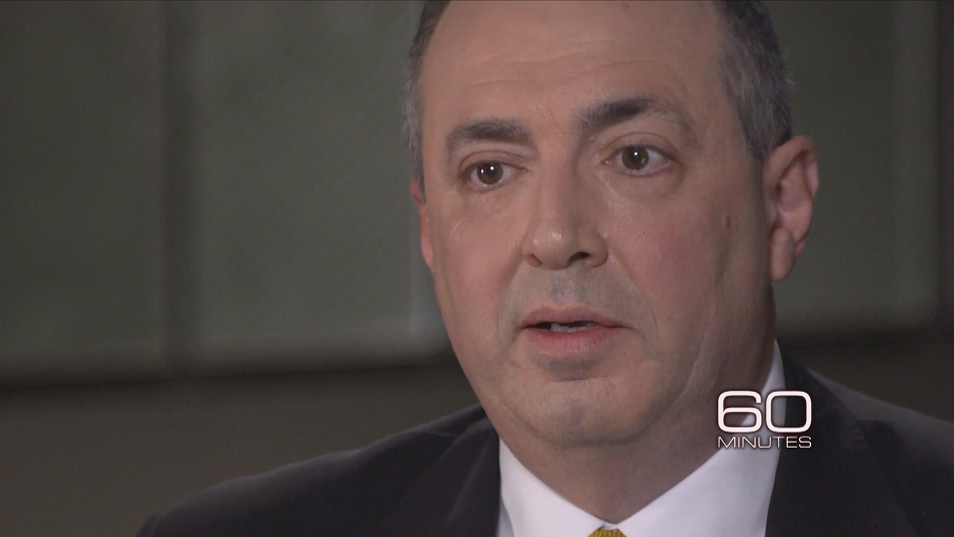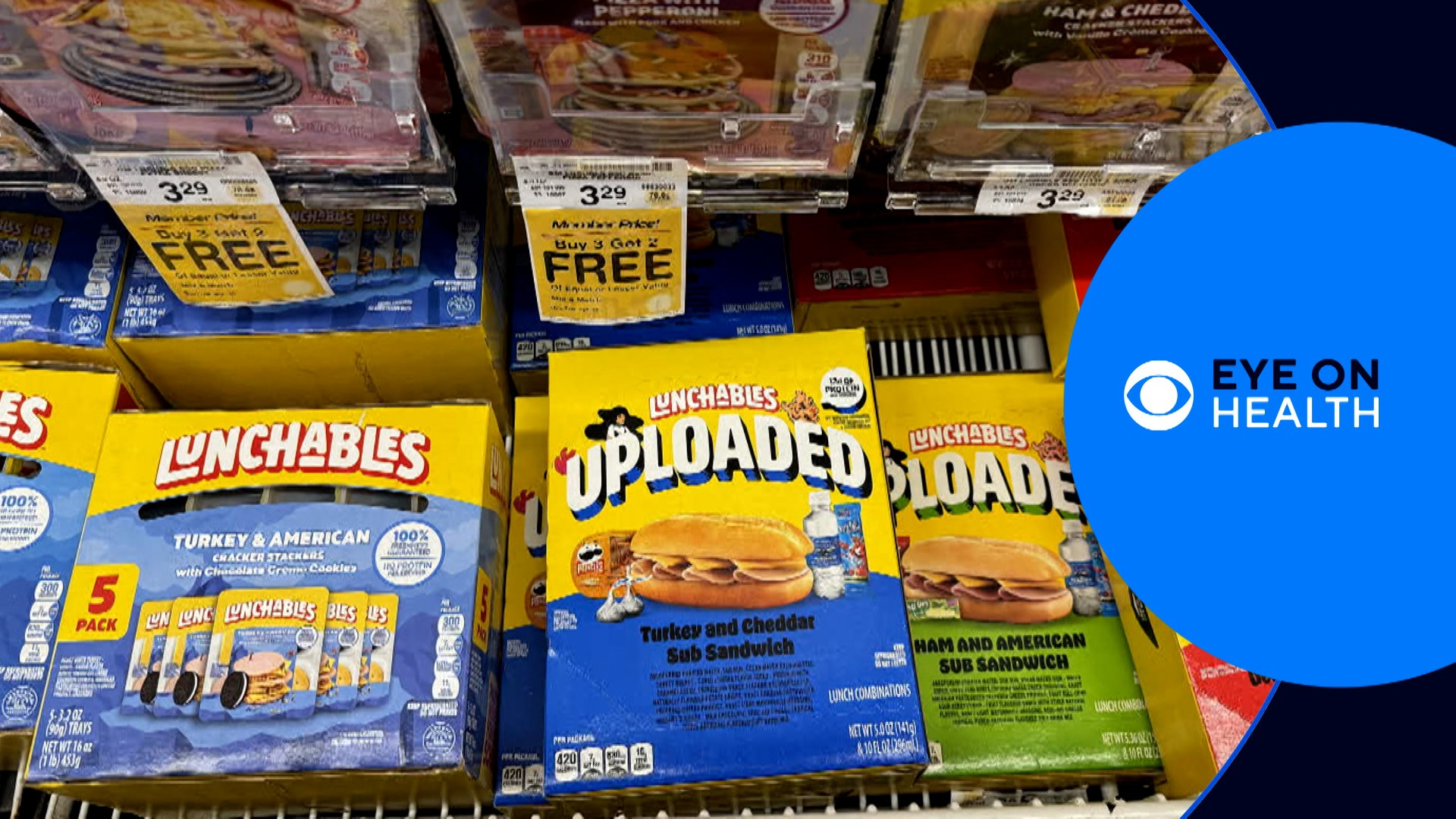As the Opioid epidemic continues to take lives across the nation, a whistleblower from the Drug Enforcement Administration is speaking out against actions taken by Congress.
The former DEA administrator told 60 Minutes and the Washington Post that pharmaceutical distributors have been turning a blind eye, allowing for Opioids to spill into the streets, and he argues a recent Congressional bill blocks the DEA from stopping it.
"This is an industry that's out of control," said Joe Rannazzisi. "What they wanna do, is do what they wanna do. And not worry about what the law is."
The interview was granted, as part of a collaborative report put together by "60 Minutes" and The Washington Post. Rannazzis ran the DEA's division responsible for regulating the drug industry, and has been pushing for a more aggressive level of enforcement. He was forced out of the agency in 2015.
"If they don't follow the law in drug supply," he said. "People die. That's just it. People die."
Rannazzis said that his main concern was with distributors, who are essentially the middle-men that ship pain pills from the manufacturers to drug stores. The big three companies are Cardinal Health, McKesson, and Amerisource.
Rannazzis claims that these distributors are turning a blind eye to these pills, and are allowing them to be diverted for illicit use. According to the report, these distribution companies were supplying the drugs to "corrupt doctors and pharmacists" who peddled narcotics to the black market.
"This is an industry that allowed millions and millions of drugs to go into bad pharmacies and doctors' offices," he said. "That distributed them out to people who had no legitimate need for those drugs."
Approximately 200,000 people have died from the Opioid epidemic in the U.S.
Congress' Role In This:
The report also claims that Congress had a big part in the problem, when they passed the Ensuring Patient Access and Effective Drug Enforcement Act. According to internal agency and Justice Department documents examined by the Washington Post, the bill made it virtually impossible for the DEA to freeze "suspicious narcotic shipments."
According to the Washington Post, the bill was the "crowning achievement of a multifaceted campaign by the drug industry" to slow the DEA's ability to stop the distribution.
Rannazzisi said this bill epitomizes a big problem with pharmaceutical lobbying. Political Action Committies representing the industry contributed at least $1.5 million to 23 lawmakers, who sponsored or co-sponsored a version of the bill.
The main sponsor for the bill was Rep. Tom Marino, a Republican from Pennsylvania that is now President Trump's nominee to become the nation's next drug czar. The Washington Post reported that he received nearly $100,000 from industry-backed PAC's. In the end there were eleven sponsors from both parties, including well-known senators like Orrin G. Hatch, from Utah. Hatch received approximately $177,000 from industry-backed PAC's.
The numbers behind pharmaceutical lobbying is also substantial. From 2014 to 2016, the drug industry spent $106 million to lobby Congress on the bill. That included Pharmaceutical Research and Manufacturers of America, which spent $40.8 million, CVS Health, which spent $32.8 million, and National Association of Chain Drug Stores, which contributed $8.3 million.
"The drug industry, the manufacturers, wholesalers, distributors and chain drugstores have an influence over Congress that has never been seen before," Rannazzisi told the Washington Post. "I mean, to get Congress to pass a bill to protect their interests in the height of an opioid epidemic just shows me how much influence they have."
The bill, of which many lawmakers knew nothing about, according to the recent article, sailed through Congress, and was passed with unanimous consent.
Congressional Reaction:
Marino declined to comment on the Washington Post-60 Minutes story, although he did tell the Post in 2014 some basis for the legislation:
"We had a situation where it was just out of control," he said. "Because of [Rannazzisi]. His only mission was to get big fines. He didn't want to [do] anything but put another notch in his belt."
Matt Whitlock, a spokesman for Sen. Orrin Hatch said that the DEA, which had undergone a leadership change did not oppose the bill in the end.
"We worked collaboratively with DEA and DOJ..." he said in a statement to the Post. "And they contributed significantly to the language of the bill."
Rep. Peter Welch, a Democrat from Vermont responded with a statement as well:
"I supported Rep. Marino’s bill because it clarified the rules of the road for distribution companies," he wrote in a statement. "Seeking to comply with agency directives and freed up agency resources to go after bad actors in the system. If the intent of the law is not being fulfilled, then Congress should conduct oversight hearings and make changes that address concerns raised by the DEA."
Rep. Gus M. Bilirakis, a Republican from Florida released a statement as well:
"My hope was that this legislation would eradicate the scourge of opioid addiction while allowing seniors, Veterans and other people with significant pain to get the relief they need with a legitimate prescription."
Sen. Sheldon Whitehouse, a Democrat from Rhode Island released the following statement:
"The fact that it passed the entire Senate without hearing any sort of communication that would have triggered concern of at least one Senator doesn’t really pass the smell test."
The Washington Post-"60 Minutes" article is substantial. To read the entire report, click here.


